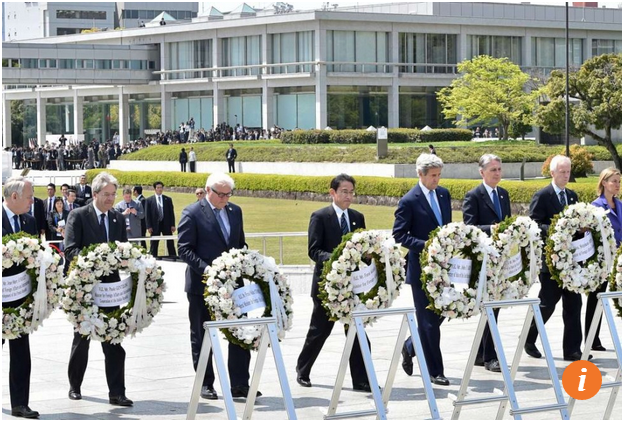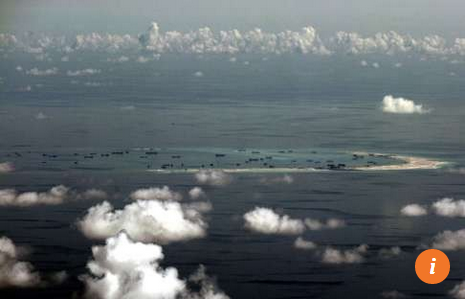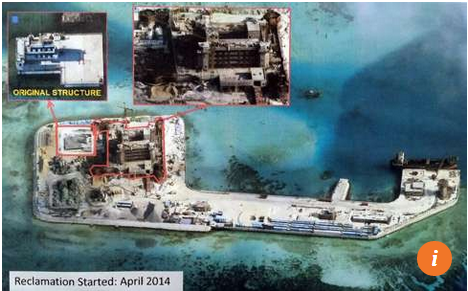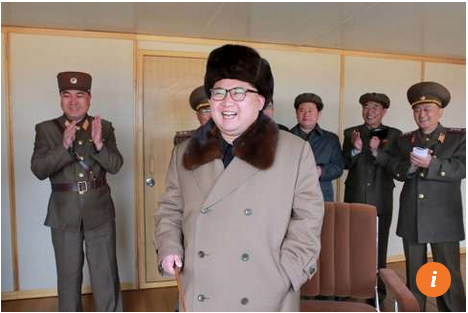
(Opinion) G7 Forum Held Hostage Over South China Sea: Beijing
2016-04-12 09:17:54 source:South China Morning Post
April 12, 2016

Beijing responded furiously yesterday to a statement by the Group of Seven foreign ministers opposing "provocative actions" in the South China Sea, accusing the bloc of having been taken hostage by "certain countries"
In toughly worded remarks after the ministers' summit in Hiroshima, Japan, foreign ministry spokesman Lu Kang said the G7 should not be swayed by some countries' "selfish interests", and that the South China Sea disputes were being "hyped".
"If the G7 wants to continue playing a major role in the world, it should take an attitude of seeking truth from the facts to handle the issues the international community is most concerned with at the moment," Lu said.

"If the G7 is taken hostage by the selfish interests of certain countries, then this won't be beneficial to the G7's influence, role and future development."
The group of foreign ministers wrapped up their meeting in the Japanese city devastated by a US atomic bomb more than seven decades ago by condemning North Korea's nuclear tests.
They also called for the peaceful management of disputes in the East and South China seas.
"We express our strong opposition to any intimidating coercive or provocative unilateral actions that could alter the status quo and increase tensions," they said.
They also urged "all states to refrain from such actions as land reclamations" and "building of outposts ... for military purposes".

In an apparent reference to China's spat with the Philippines, the group called on countries to observe international maritime laws and implement any binding judgments delivered by courts and tribunals. The Philippines has lodged a case with the Permanent Court of Arbitration in The Hague about its dispute with Beijing in the South China Sea. China has said it does not recognise the case.
The G7 foreign ministers also released a statement on maritime security in Lübeck, Germany, last year, but experts said the new statement sent a stronger signal in pressuring China in the disputes.
"[The G7 countries] intend to use the statement to contain China's actions in the South China Sea and also to pressure China into accepting the arbitration," said Li Mingjiang, associate professor at S. Rajaratnam School of International Studies of Nanyang Technological University.

Wu Shicun, president of the National Institute for South China Sea Studies, said China was expected to face immense international pressure after the court ruling. "But there is no turning back for China in the South China Sea. China will not comply with the arbitration ruling, nor will it change its policy," Wu said.
Tensions over the South China Sea have run high in recent months after China's construction of artificial islands complete with airstrips. The US has increased patrols in the region.
Both Wu and Li said there had been a change in attitude in Europe towards the South China Sea, as they became increasingly concerned about freedom of navigation and trade.
"China will need to state its position and explain why it is not recognising the international court ruling to Europe," Wu said.
Read more:
